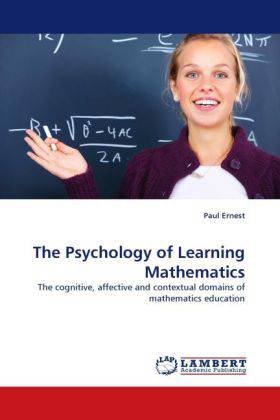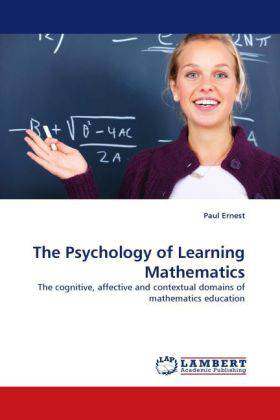
- Afhalen na 1 uur in een winkel met voorraad
- Gratis thuislevering in België vanaf € 30
- Ruim aanbod met 7 miljoen producten
- Afhalen na 1 uur in een winkel met voorraad
- Gratis thuislevering in België vanaf € 30
- Ruim aanbod met 7 miljoen producten
Zoeken
The Psychology of Learning Mathematics
The cognitive, affective and contextual domains of mathematics education
Paul Ernest
Paperback | Engels
€ 67,45
+ 134 punten
Omschrijving
This book overviews concepts, theories and research in the psychology of learning mathematics, including research methodologies. The organising framework is the classification of the central learning outcomes of school mathematics into facts, skills, conceptual structures, general strategies and appreciation. Each component is treated in one or two dedicated chapters. There is a chapter on theoretical and practical aspects of constructivist learning theory, and another on the mathematical processes, strategies, and thinking involved in mathematical problem solving, including meta-cognition. A further chapter treats attitudes to and the appreciation of mathematics. The last two chapters explore a theme that has emerged as important in the psychology of mathematics education in recent years, the impact of context, both task and social context. This concerns the cognitive and psychological significance of both the external representations and situated embodiments of mathematical ideas and tasks, and also their internal, mental representations. It also concerns the links between these two domains including theories of transfer of learning.
Specificaties
Betrokkenen
- Auteur(s):
- Uitgeverij:
Inhoud
- Aantal bladzijden:
- 164
- Taal:
- Engels
Eigenschappen
- Productcode (EAN):
- 9783844313062
- Verschijningsdatum:
- 25/02/2011
- Uitvoering:
- Paperback
- Formaat:
- Trade paperback (VS)
- Afmetingen:
- 152 mm x 229 mm
- Gewicht:
- 249 g

Alleen bij Standaard Boekhandel
+ 134 punten op je klantenkaart van Standaard Boekhandel
Beoordelingen
We publiceren alleen reviews die voldoen aan de voorwaarden voor reviews. Bekijk onze voorwaarden voor reviews.











